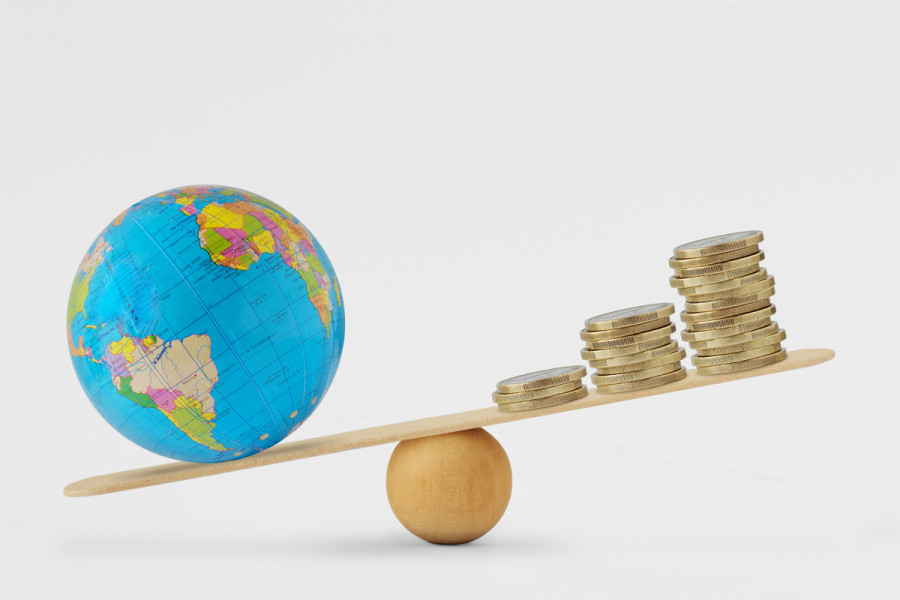Columns
Time for a rethink
If the earth could speak, it would surely call out humans as viruses to the natural environment.
Naresh Koirala
‘Invisible enemy’; ‘We are at war’; ‘Surprise attack’; ‘Victory’; ‘We will win’ and ‘We will come out even stronger after this’. Covid-19 has given renewed currency to these battle cries of yesteryears, yet there is no battlefield per se.
It is true that we are in a crisis. We must be on the war footing to mitigate Covid-19's immediate impact. But to call the virus an enemy is misleading. It did not evolve to kill human beings and it does not go about looking for human prey. It is a product of nature's processes—much like a forest fire, an earthquake or a flood. The impact of fires or floods or earthquakes is local, but Covid-19 is global. That is the only difference. We do not call natural disasters the enemy; why call Covid-19 that?
Characterising the virus as such and inciting battle cries may, for the time being, help rally citizens around efforts to manage its impact and appeal to status-quoists who dream of a return of the pre-Covid-19 economic order, but a serious rethinking of our current economic model is required if we want to avoid similar catastrophes in the future.
We need to start with some fundamental questions. But before that, it is important to dispel the notion of ‘winning’ this battle.
Will we ever win?
Epidemiologists are working day and night to understand the structure of SARS-CoV-2 and to develop a vaccine. Social distancing measures and lockdowns to control its spread are being strictly enforced. That is a good thing and there are signs, for now, this is helping to save lives. But none of this may help us if we are struck by another equally lethal pandemic in the future.
Viruses are, like us, products of evolution. We are more similar to viruses than we think. Viruses lodge in our cells, attack our immune system, replicate and kill us. When we die, they die with us. That is hardly different from what we do the earth. Like the novel coronavirus, we recklessly exploit the resources provided by our host (the earth) and disrupt its ecosystem. When the earth dies we die with her.
We destroy 85,000 acres of forest every day and eliminate some 50,000 species a year to fuel the global economic engine we have built. That is not all. We pollute our air and water, weaken our respiratory system and make ourselves vulnerable to viral attacks. We wipe out thousands of other species that rely on clean air and water to sustain them. If the earth spoke in our language, she will probably call us the most lethal of viruses.
SARS-CoV-2 has exposed our frailty as never before. We are not as powerful as we pretend to be. A tiny little thing, a millionth of an inch, has brought the biggest powers on earth to their knees. We have to ration medical care and prioritise some lives over others because we neither have sufficient equipment nor manpower to take care of all who need care. After this humiliation, the assertion that ‘we will win and come out of it stronger’ sounds like a taunt from a defeated bully. The fact is we will eventually get through the Covid-19, but to call it a win is nonsense.
Fundamental questions
Could it be that, following the Darwinian logic, viruses from bats or snakes, which are allegedly the source of Covid-19, evolved to sustain their species in the environment we forced upon them? But why did they evolve now? After all, humans have been eating exotic wildlife for centuries.
The fundamental question here is whether there is a relationship between the emergence of new viruses and our assault on the natural environment, predicated by our current economic model. We should be asking whether this model is conducive to creating new strains of viruses and is innately insecure.
The urgency to address these questions and reconsider our economic model is underscored by the fact that if another pandemic strikes or Covid-19 keeps evolving, and we go back to social separation and lockdowns, the world economic order is sure to collapse.
As I write this I am reminded of two great thinkers I was fortunate to meet during my lifetime. One was Willi Unsoeld and the other was our own BP Koirala. Willi’s gentle rebuke in 1972, when I congratulated him for ‘conquering’ Mt Everest, is etched in my head forever. Somewhat dismayed with my choice of the word conquer, Willi looked straight into my eyes and after about 15 seconds of sobering silence, calmly said, ‘Naresh! No one conquers Mt Everest. I reached the summit with some friends’. His message: you cannot conquer nature; respect and live in harmony with her. Those days, ‘conquer’ was the word used to celebrate the successful ascent of mountains.
BP Koirala was an advocate of sustainable development and of a simple life in harmony with nature. He used to argue that the American economic model is unsustainable. He said so to an American audience when he was in the US in the late seventies. BP was a fan of economist EF Schumacher’s book Small Is Beautiful: A Study of Economics As If People Mattered and encouraged his admirers to read it. Schumacher was critical of the culture of ‘gigantism’ (everything big is good) and believed insatiable consumption robbed humanity from ordinary workers. The modern economic machine has destroyed the environment and made us ‘cogs in an economic wheel’.
Willi, BP and Schumacher foresaw the inherent instability in the current economic model and the human cost of its failure. We are suffering because we ignored them.
Covid-19 has given us a wake-up call. It has reminded us of what matters. It is time to rethink our economic model. The sooner we recognise that we have a common destiny with other species that inhabit this planet and change our lifestyle to be in harmony with the earth's ecological order, the better are our chances to minimise the damage by future pandemics/natural disasters.
***
What do you think?
Dear reader, we’d like to hear from you. We regularly publish letters to the editor on contemporary issues or direct responses to something the Post has recently published. Please send your letters to [email protected] with "Letter to the Editor" in the subject line. Please include your name, location, and a contact address so one of our editors can reach out to you.




 9.89°C Kathmandu
9.89°C Kathmandu















